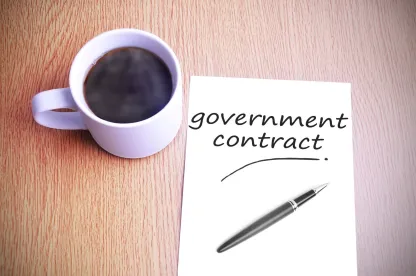The U.S. Department of Labor's Office of Federal Contract Compliance Programs (OFCCP) has issued a series of new directives over the last few months to ensure federal contractors comply with equal employment opportunity laws corporate-wide, including the Early Resolution Procedures and Voluntary Enterprise-wide Review Program.
Early Resolution Procedures (ERP)
The OFCCP has long held that problems identified at one location are indicative of a systemic or enterprise-wide problem. ERP is designed to promote early and efficient supply-and-service compliance and provide a mechanism to help remedy violations found during compliance evaluations more quickly. Contractors that participate in ERP will not be issued a Pre-Determination Notice (PDN) or Notice of Violation (NOV) and may go directly to conciliation.
Framework and Procedures
Applicability
ERP is applicable to all current OFCCP compliance audits in which a PDN, NOV, or Show Cause Notice (SCN) was not issued as of November 30, 2018.
Under the ERP, there will be three types of violations:
Non-Material Violations
- During the desk audit, non-material violations such as an incomplete Affirmative Action Program (AAP), and no additional indicators of potential discrimination, lack of good faith efforts or other material non-discrimination violations, will follow current audit procedures.
- Assistance will be provided and a closure letter will be issued.
Material Violations: Non-Discrimination
- Upon completion of the desk audit, if a contractor has multiple establishments, then OFCCP will attempt to resolve material "non-discrimination" violations (e.g., record keeping, applicant tracking, failure to implement audit and reporting systems, failure to conduct self-analysis) through an Early Resolution Conciliation Agreement (ERCA) with Corporate-Wide Corrective Action.
- The ERCA sets a report monitoring period. The contractor will be required to review all of its remaining establishments for similar violations during that period and will provide progress reports and supporting documentation with specific information.
- If the contractor and OFCCP agree to these terms, OFCCP will not conduct any further compliance review at the original establishment for five years, although it may conduct such review at other establishments.
Material Violations: Discrimination
- Upon completion of the desk audit, the compliance officer must submit the findings to OFCCP's district and regional management within 14 days.
- OFCCP will request additional information and interviews regarding the violation to calculate a monetary remedy. The OFCCP will complete an analysis and if discrimination is still indicated, ERP will be offered, during which the contractor may provide additional information to rebut the findings of discrimination.
- If discrimination violations are eliminated, the compliance officer will work on resolving the non-material violations and will issue a closure letter. If evidence of discrimination remains, the OFCCP will seek to make whole relief for the affected applicants and/or employees.
- The contractor will be required to review other establishments for similar violations and implement corrective action during a five-year progress report-monitoring period. No compliance review will be conducted of the covered establishments during this monitoring period.
- The entire conciliation period is expected to take no more than 60 days, unless an extension is granted.
Takeaway: Contractors should consider taking advantage of ERP to try to resolve potential violations early in the audit process. In addition to conserving resources, a contractor can avoid the disruption of on-site inspections, employee interviews, and responding to extensive document and data requests.
The Voluntary Enterprise-wide Review Program (VERP)
To recognize high-performing federal contractors and those contractors who aspire to reach that level, the OFCCP has issued a new directive that establishes a voluntary enterprise-wide compliance program. Successful participants will receive a three- or five-year audit exception on their AAPs from compliance reviews by the OFCCP.
Framework and Procedures
- The program consists of two tiers. The top tier will consist of federal contractors with corporate-wide model diversity and inclusion programs who will receive a five-year audit exception. The second tier of contractors will receive individualized compliance assistance to help them become top performers and will receive a three-year audit exception.
- As part of the application process, the OFCCP will conduct compliance reviews of the headquarters location and a subset of other locations. Contractors will have to demonstrate that they are in compliance with OFCCP's basic requirements and have demonstrated commitment and the successful application of Equal Employment Opportunity (EEO) programs throughout the company.
- Contractors will be able to apply to the program electronically beginning October 1, 2019. The OFCCP is expected to provide information on how to apply later this year. Contractors can reapply for the VERP at the end of the five- or three-year audit exception. During their time in the program, contractors must maintain a discrimination-free workforce and have no material violations. Contractors will also have to provide periodic reports to the OFCCP. Contractors who do not qualify for the VERP or who are removed, will be returned to the compliance evaluation pool.
Takeaway: This program likely will only be attractive to federal contractors that are subject to multiple audits due to a large number of establishments, each requiring its own AAP. High-performing federal contractors that would like to participate in VERP are expected to be able to apply in the fiscal year 2020. Before applying, these contractors should ensure that they are in compliance with the OFCCP's affirmative action requirements and have demonstrated a significant commitment to EEO programs.





 />i
/>i
